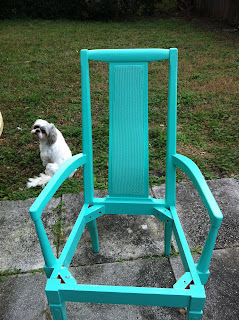
powerful woman,
coming with swinging haunches,
breasts straight forward,
supple shoulders, full arms
This evocative description instantly drew me in; I quite literally giggled at the “swinging haunches.” I imagined myself being able to imitate this line flawlessly. Even the sound of this phrase, particularly of the word “haunches” sounds juicy. “Haunches” encompasses the whole region of thighs and buttocks. I don’t necessarily think of a thin woman and think of her butt and thighs as “haunches.” But thinking of, OH, say, ME…now, THERE you have haunches. I kept reading and thinking of the breasts, supple shoulders, full arms. I must’ve read the description three times, suddenly proud of my own “powerful” figure. The last time I felt such pride was in my eleventh grade Humanities class, when our teacher showed us Boticelli’s “Birth of Venus.” Williams’ poem whirled me back to that moment of initial pride in a curvaceous body. I remember, for the first time ever, I didn’t feel 140 pounds (20 pounds larger than any other cheerleader on my team); I felt powerful.
Pleased, I digested the poem more and more, noticing that the anticipation builds from the initial line in the stanza, wherein the narrator says “—what a blessing it is/to see you in the street again” (66). Clearly, the narrator finds pleasure in seeing this woman; indeed, he considers it a “blessing”. The Oxford English Dictionary defines “blessing” as “an invocation of divine favor” (“blessing”). I found this to be the most pleasant discovery. Could it be that I was remembering the images of Venus from my earlier education for a reason? COULD this woman, this figure, perhaps represent some sort of everyday Venus? Given that the narrator later describes “fresh eggs…[she] brings so regularly”, it doesn't seem much of a stretch that the eggs could be tied to fertility, one of the areas over which Venus presides.
As I finished my assigned readings last week, I noted a few more similar sensual descriptions that made me think of a Venus figure:
First, in Portrait of a Lady, a woman is praised because “[her] thighs are appletrees/whose blossoms touch the sky” (129). Again, a bit later, in The Cold Night, there is reference to “round and perfect thighs” (154).
Upon finding these instances, I did a bit of background research (ahem, Wikipedia) and remembered that Venus was not only the goddess of love and fertility, but she was also strongly linked with April and Springtime—all subjects about which Williams writes.
I furthered my scholarly research, this time through the MLA database. OH, EUREEKA…there is nothing to describe the moment of giddiness when I found “Williams” and “Venus” rendered a few search results. I still have further research to do—which will more than likely end up in a more formalized argument supporting my little ‘ole findings I am rambling on about here. For now, I am going to safely send my humble assertion into blogland: Williams sure does seem to be flirting with Venus.







